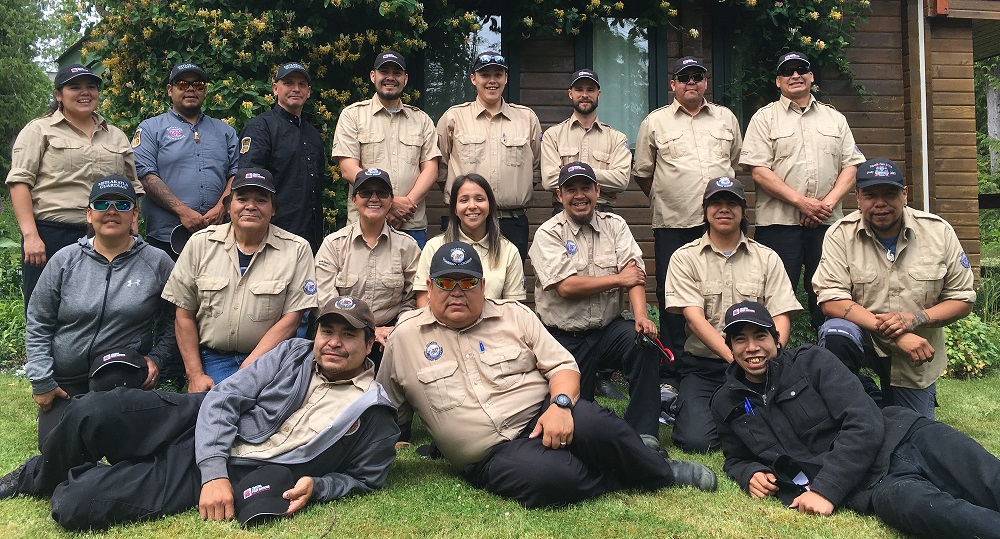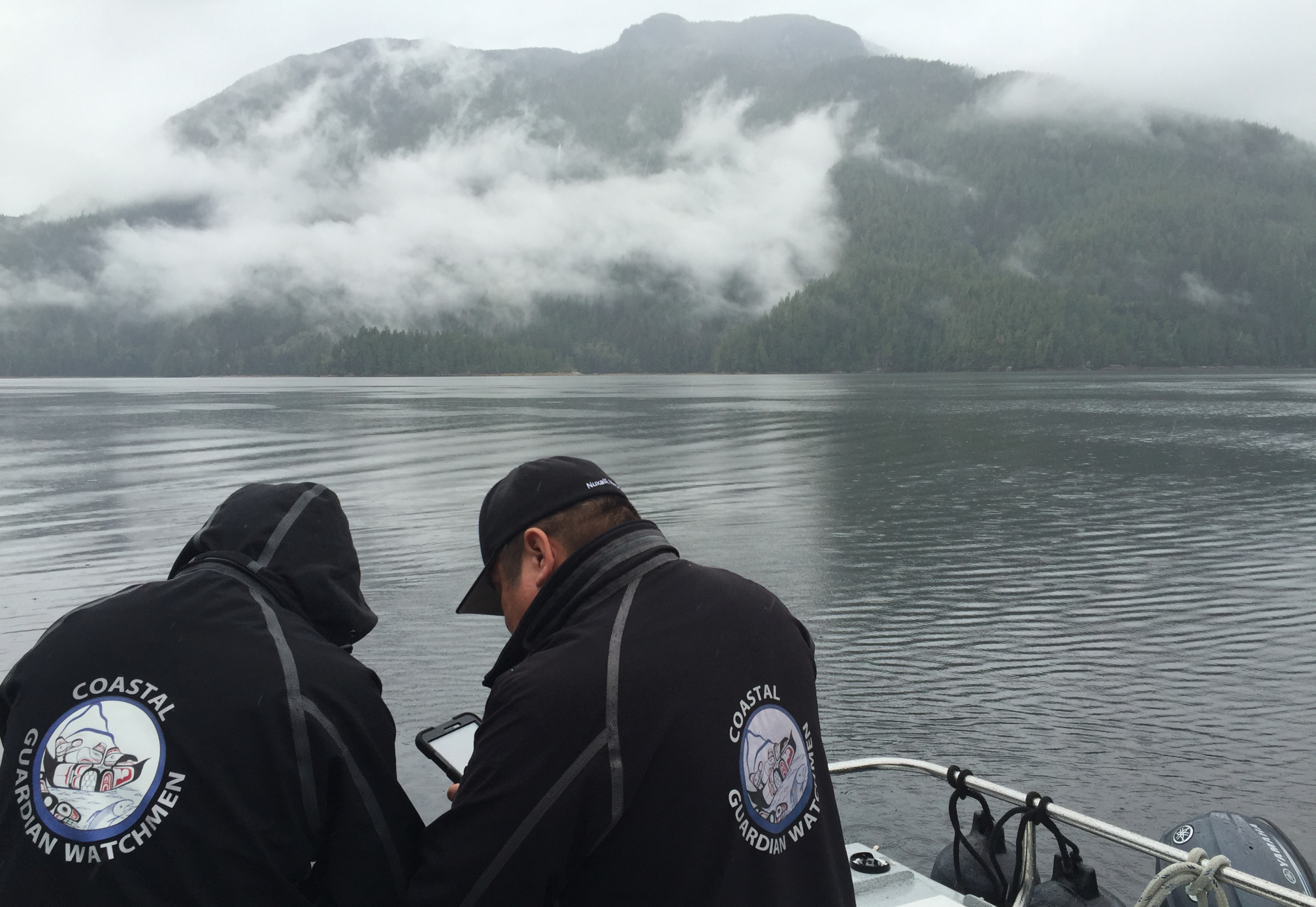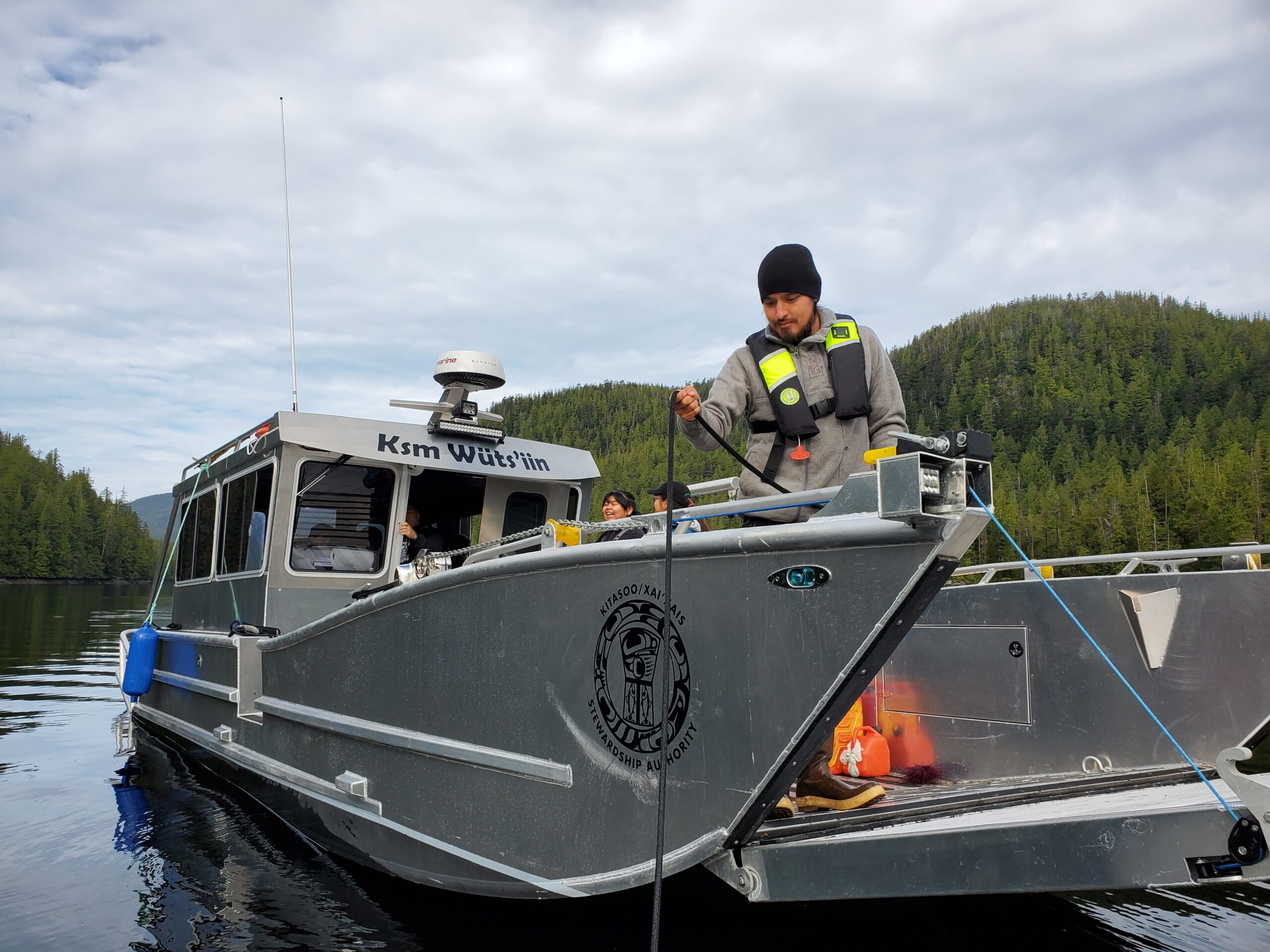In July, Coastal Guardian Watchmen from across the North and Central Coast met for the Coastal Stewardship Network annual gathering at the Hakai Institute on Calvert Island.
To kick off the event, Guardians took turns presenting to the rest of the group about their program’s stewardship and monitoring work, highlighting both successes and lessons learned from the previous year, as well as future stewardship priorities. Those in attendance represented a great mix of experienced Guardians along with many others who had just started their first season on the job.
As with every year, the gathering involved a broad range of hands-on field training—including kelp-monitoring techniques, technical training on using the new CoastTracker App for the Regional Monitoring System, as well as Tactical Communications for Compliance & Enforcement training with BC Parks representative, Steve Hodgson.
This year’s gathering also featured a workshop session on Indigenous Laws, including spirited and thoughtful discussions about how Indigenous belief systems, passed down over many generations, form the foundation of Guardians’ stewardship work. The session also explored instances where Indigenous and colonial laws are interlinked, and how they are interpreted and enforced.
Special guests La’goot (Spencer Greening) from the Gitga’at Nation and Georgia Lloyd-Smith (West Coast Environmental Law) teamed up to facilitate the session. As much as possible, the presenters opened the floor to the Guardians, who were asked how they viewed Indigenous Laws, both personally and for their work. “Respect for the land” and “taking only what you need” were just a couple of the many notions that were identified, but all Guardians focused on the importance of following the teachings of their ancestors, and doing so for the sake of their children.
The discussion explored the many ways that Indigenous Laws are having a positive impact on efforts to sustainably manage lands and waters throughout the North and Central Coast and Haida Gwaii, with participants identifying important recent examples, such as ending the trophy bear hunt, enforcing crab closures and limiting activities around important salmon spawning grounds. The Guardians also brainstormed some of the laws they would like to see enforced in their coastal territories, including suggestions to ban over-fishing, ensure sharing of hunts with the community enforce weekend harvesting closures, and increase efforts to monitor and better regulate impacts from sports fishing in their territories.
Every gathering is an excellent learning experience for all Guardians involved, and a great way to make new connections and renew old ones. But this year had something even more special—a unique mix of technical, hands-on skill-building, complemented by an in-depth look at the Indigenous Laws that both inspire and guide their long-term stewardship work.


